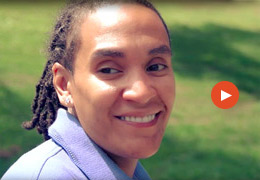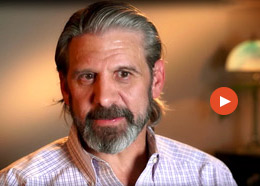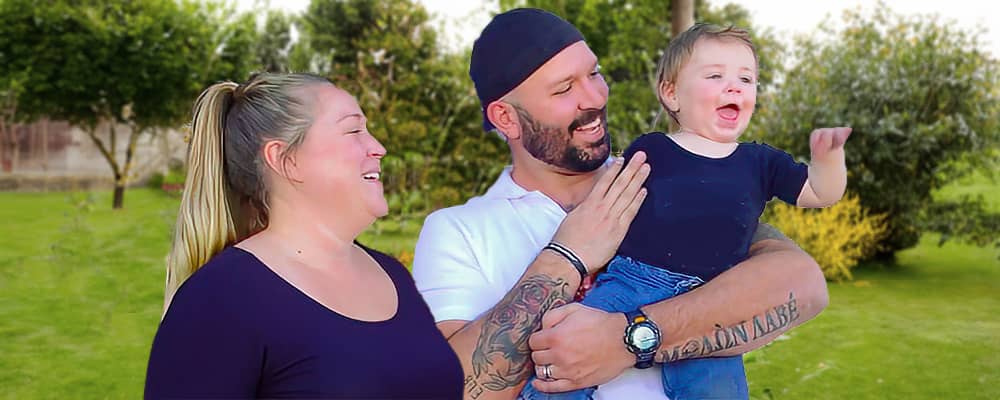The statistics are heartbreaking. Over half a million U.S. troops deployed since 2001 suffer from post-traumatic stress, yet less than 20 percent receive adequate care. The result? Roughly 20 veterans a day commit suicide.
Battle trauma. Multiple tours of duty. Combat guilt. Physical, mental, and emotional injury… The costs of military service are enormous, and the need for more effective treatments is urgent.

Veterans practice TM at Boulder Crest Retreat in Bluemont, VA, the nation’s first rural wellness center dedicated to combat veterans and their families.
Since 2013 more than 1,500 veterans—most with Post Traumatic Stress Disorder (PTSD) or Traumatic Brain Injury (TBI )—have learned the Transcendental Meditation® (TM®) technique through TM for Veterans, which recently launched a new website. This branch of the U.S. TM organization works with the David Lynch Foundation (DLF), which provides TM scholarships for wounded warriors and others at risk, along with the Veterans Administration and the Department of Defense.
The results have been remarkable, and TM is fast gaining recognition as a proven self-care program for post-traumatic stress.
Now, with TMforVeterans.org, more veterans and active-duty men and women can easily learn how TM can help them take back their lives.
“The first time I did the Transcendental Meditation session, it felt like a rock had been lifted off of me… With TM my life changed instantly for the better.” —Veteran of the Afghanistan war
6 Ways TM Is Ideal for Veterans
“Nothing worked—psychiatrists, psychologists, social workers. Nothing,” reported a veteran of the Afghanistan war. “The first time I did the Transcendental Meditation session, it felt like a rock had been lifted off of me… With TM my life changed instantly for the better.”
TM has a unique combination of features that make it particularly valuable for veterans:

“To know that something as small as 20 minutes twice a day can make me feel like I feel now, that’s a gift that you can’t buy.” (TMforVeterans.org)
1. The technique is easy to learn and practice, and one becomes proficient in a matter of days.
2. It can be done in the privacy of one’s own home, without visits to an outside facility.
3. There is no stigma associated with practice. This is essential because many veterans avoid treatment for PTSD because of the negative repercussions they believe it could have on their work or relationships.
4. It is portable and fosters self-sufficiency. Veterans can do it on their own, wherever they are, which for many increases the likelihood that they will practice TM on a regular basis.
5. Results begin immediately with learning the technique. When veterans experience relief right away, they’re motivated to continue with their TM practice.
6. It broadly impacts psychological and physical health, simultaneously reducing symptoms of PTSD, depression, anxiety, pain, insomnia, and blood pressure. Other drug and cognitive therapies don’t provide this range of benefits.
This is exactly what Staff Sgt. Todd Knauber, an Afghanistan veteran, has experienced since starting TM: “In the short period of time I have been meditating, there has been a near reformation of my life. What the doctors and medicines promised to ‘potentially’ do over the course of years, I have gotten much closer to achieving in months.”
He went on to report that the changes have been clear not only to him but to those around him: “I have been told that I look like an entirely different person from who I was, coming back from Afghanistan. I am vibrant, I smile, and I look much more grounded. The truth is you can’t practice TM without it positively affecting you.”
Rapid Results Where Other Treatments Fail
TM results come quickly, with up to a 50 percent reduction in symptoms, as measured by the PTSD Check List (PCL), in just the first month of practice. And the benefits for veterans and their families have been life-saving.

“For the first time in I don’t know how long, I felt hope. It’s made me a better father, a better husband. It’s changed everything.” (TMforVeterans.org)
As the spouse of one marine said, “TM has given Stephen an inner peace and ability to find calm when before he only found anger, fear, and resentment. TM has saved our marriage, brought our family closer, and given us hope that we can finish out this tour with the Marine Corps with peace and success.”
For this Iraq and Afghanistan veteran, “TM acted like an ice pack placed directly on the heated up and hyper-vigilant part of my brain that couldn’t calm down, that couldn’t think straight, that couldn’t hold a rational or coherent thought… Where everything else had failed, where other attempts and interventions had fallen short, where I had previously been baffled, TM literally cracked open my heart.”
Or as a vet from Afghanistan simply said, “IT WORKS!” For her, the difference TM will make in the life of a veteran “can’t be bought or downloaded. It comes from within, and that is a place I know I’ve missed—a place my PTSD took from me, and TM has given it back.”
TM results come quickly, with up to a 50 percent reduction in symptoms, as measured by the PTSD Check List (PCL), in just the first month of practice.
How Can TM Have Such Profound Benefits?
The TM technique differs from cognitive therapies for PTSD by working at a neurophysiological level. Because TM provides an exceptionally deep level of rest to the entire body, it can both neutralize existing stress and increase resilience to stress. This “dual action” significantly reduces stress levels over time, markedly improving stress-related problems and strengthening mind-body functioning generally, as 45 years of research has shown.
As Dr. Frank Staggers, director of Berkeley Addiction Treatment Services, explains on TM for Veterans, “When a person practices TM, the effects are pan-systemic—every system of the body is affected from the brain down. It is good for the whole mind-body system.”

“I would recommend it to any other veteran that’s suffering from PTSD. I feel like a completely changed person. I just feel great!” (TMforVeterans.org)
This is exactly what one marine veteran reported in his remarkable catalog of results: “ALL of my physical issues either cleared up or became much less. These included: hypertension, headaches, high blood pressure, insomnia, anxiety, PTSD, readjustment syndrome, irritable bowel syndrome, alcoholism (2-3 fifths a week), restless leg syndrome, and insomnia due to back pain.”
He believes TM saved his life and his marriage: “My wife saw a change in me from the first evening. Her stress compounded with my issues, and my marriage was all downhill. I can honestly say that, without any doubt, TM saved my life, my marriage, and now it has saved my wife’s life also. My only wish is that I want to spread this and help as many vets as I can.”
“ALL of my physical issues cleared up or became much less… hypertension, headaches, high blood pressure, insomnia, anxiety, PTSD, readjustment syndrome, irritable bowel syndrome, alcoholism (2–3 fifths a week), restless leg syndrome, and insomnia due to back pain.” —Marine veteran
Less Depression, More Peace and Happiness
Veterans who learn TM also report that their depression decreases and they feel much happier and more confident.
“My depression has improved daily, and my aggression has vanished. TM has given the perspective to live with a peaceful mind,” said this Iraq war veteran. “It’s like I was living in a fog of war, and TM cleared the fog, allowing me to see things clearly.”

“You don’t have to suffer anymore. There’s a better way. Just try this. I promise you, this will make it better.” (TMforVeterans.org)
Prior to learning TM, this partner of an army veteran worried chronically and was prone to harsh self-criticism and depression: “TM has given me a newfound sense of confidence and relief. I feel significantly less overwhelmed and happier! After half a year of TM, I am mentally stronger and better equipped to handle the ebb and flow of life.”
Having a self-healing resource like TM is a boon for veterans and clinicians alike. “What piqued my interest in TM was all the research that’s been done and how incredibly effective it is for trauma, stress,” said clinical psychologist Anna Benson, Ph.D. “The evidence now is that in combat stress, the trauma actually changes the brain so that the ability to self-regulate isn’t there. Meditation helps with information processing, helps with self-regulation. Here we have another tool that is fabulous, and they can do it for themselves.”
“When a person practices TM, the effects are pan-systemic—every system of the body is affected from the brain down. It is good for the whole mind-body system.” —Dr. Frank Staggers, director of Berkeley Addiction Treatment Services
3 Things You Can Do to Help Veterans
Would you like to lend support to the veterans in your life and community? Dr. Jamie Grant, director of programs for TM for Veterans, suggests three simple steps:
1. “If you know a veteran who is suffering from a war-related injury—psychological or physical—refer them to the new website, TMforVeterans.org. It presents a complete picture, both through testimonials and research, of the value that TM can have for them. TM has so much to offer these veterans that you will be doing them a big favor by introducing them to the potential value that TM has.
2. “If you have connections with veteran-service organizations or anyone who works with veterans, point them to TMforVeterans. TM is a highly effective complement to existing programs.
3. “Finally, if you support veteran organizations financially or are connected to people who do, consider directly supporting TM scholarships for veterans, either through TMFriends.org (select ‘TM for Veterans’ under ‘Purpose’) or the David Lynch Foundation.”
Share this article and TMforVeterans.org with your friends and family. It may be just what someone needs to see. As the marine veteran above said, “I can honestly say that, without any doubt, TM saved my life… My only wish is that I want to spread this and help as many vets as I can.”


Comments